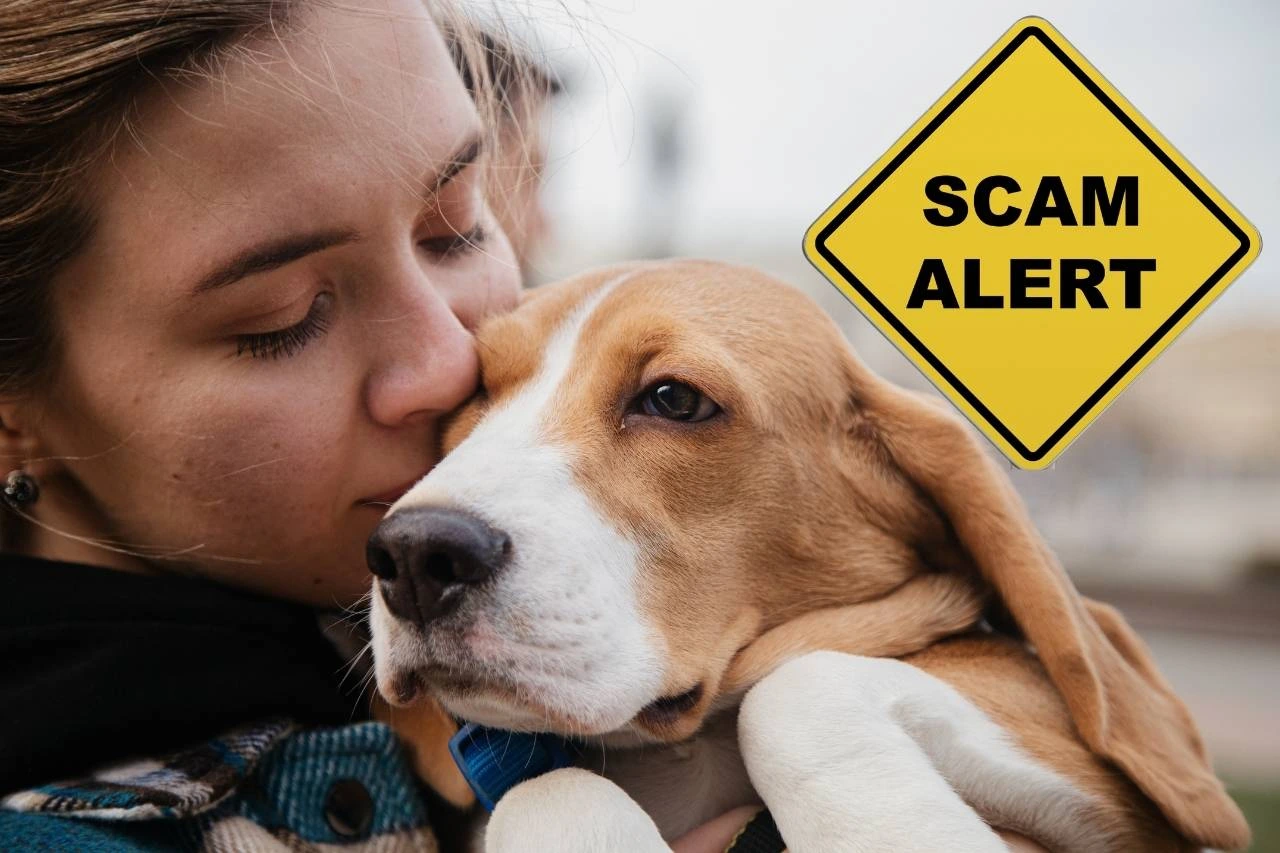Pet lovers are increasingly relying on pet transport services to relocate or adopt furry friends across borders. Unfortunately, this growing demand has also led to a sharp rise in pet shipping scams.
Fake pet travel agencies exploit trusting individuals by promising safe pet deliveries that never materialise. As a responsible industry voice in pet shipping, we aim to empower pet owners with the knowledge to avoid falling prey to these deceptive practices.
JCS Pet Travel (a division of James Cargo Services) holds accreditation from IPATA, IATA, and DEFRA for local and international pet transport to and from the UK.
What are Pet Shipping Scams?
Pet shipping scams involve fraudulent individuals or companies pretending to offer animal transport services. These scams typically involve slick websites, convincing email communication, and fake documentation. The scammers often claim to be transporting a puppy, kitten, or exotic animal for free or a small fee, only to ask for additional charges like insurance, crate upgrades, vaccination, or customs clearance later.
Many unsuspecting buyers are emotionally invested by this point and end up sending money multiple times, only to discover later that the pet never existed in the first place. These pet scams are devastating financially and emotionally and can be extremely difficult to trace once the money is gone.
Warning Signs of Fake Pet Travel Agencies
So before making contact with any pet moving service, beware of these warning signs to avoid falling prey to these fake services:
1. No Physical Address or Valid Contact Details
Legitimate pet transport companies are transparent about their location and provide valid phone numbers, emails, and business addresses. If the agency doesn’t list a physical address or only offers a contact form, it’s a red flag.
2. Poorly Designed Website with Limited Information
Scam websites often look professional at first glance but lack real content, certifications, or verifiable details. Look for signs like grammatical errors, missing FAQs, or generic testimonials. A credible agency will have a detailed website that includes license information, service descriptions, reviews, and company background.
Visit JCS Pet Travel. Get a quote now!
3. Urgency and Pressure Tactics
Scammers create a false sense of urgency. Phrases like “last puppy available” or “shipment must happen today” are designed to rush your decision-making. A trustworthy company allows you to review all legal documents, processes, and terms before any commitment.
4. Payment via Untraceable Methods
Be cautious if the pet relocation company demands payment through Western Union, MoneyGram, gift cards, or cryptocurrency. Legitimate pet shippers will offer secure, traceable payment options such as credit cards or bank transfers to verified business accounts.
5. Suspicious Email Communication
Scammers often use free email services like Gmail, Yahoo, or Outlook, avoiding custom business domains. Watch for inconsistent branding and overly formal or robotic language. Verify the email domain matches the company’s website and includes legitimate contact details and proper signatures.
Important Notice: The only official business emails of JCS Pet Travel (James Cargo Services) are info@jamescargo.com and enq@jcslivestock.com. Free to use email addresses (e.g., Gmail, Hotmail, Yahoo) with our brand name are fake. Please report any suspicious emails to us immediately. Thank you!
Common Pet Travel Scams and Tactics
Here are some of the most common pet travel agency scams used to deceive customers:
Fake Pet Adoption Ads
Scammers may post adorable pet photos on popular platforms like Craigslist, Facebook, or pet adoption websites. They’ll offer the pet for free or at a discounted price and refer you to a "shipping company" to finalise transport. These agencies are usually fake fronts run by the same scammers.
Bogus Crate or Insurance Fees
Once you agree to pay shipping, new costs emerge. You might be told the pet needs a climate-controlled crate, extra vaccination, emergency quarantine, or travel insurance. These additional payments can range from $100 to $2,000. These fees are pure fiction and will continue to rise until you stop responding.
False Tracking Numbers and Shipping Documents
To appear legitimate, scammers generate fake tracking links and forged documents. These include airline cargo manifests, veterinary health certificates, or IATA forms. The tracking websites may even allow you to "follow" the shipment. But the pet never existed, and the documentation is fraudulent.
Let us help you with safe and reliable pet shipping service to and from the UK, to your desired destination.

How to Verify a Legitimate Pet Shipping Company
Here are the five best ways to verify the legitimacy of a pet transporter:
Check IPATA Membership
The International Pet and Animal Transportation Association (IPATA) is the gold standard in global pet shipping. Reputable companies are members of IPATA and adhere to their code of ethics. Always search the IPATA directory to confirm the legitimacy of any agency.
Ask for Government Licensing
Pet travel services in most countries require operating licenses or USDA certification. Request to see official licenses and verify with relevant authorities. In the USA, ask for their USDA Transporter License number.
Read Verified Customer Reviews
Look beyond testimonials posted on their website. Instead, check Google Reviews, Trustpilot, Yelp, and Better Business Bureau (BBB) profiles. Consistent complaints about non-delivery, refund refusal, or poor communication are huge red flags.
Speak with a Human Agent
Always ask to speak directly with a real company representative. To confirm, a video call can be best to verify that the business is real and that you’re not being duped by stock images or AI-generated content.
Use WHOIS Lookup on Their Website Domain
Use domain tools like WHOIS to check when the agency’s website was created. If it’s less than 6 months old, be extremely cautious. Real pet shippers usually have an established online presence.
Steps to Take if You Suspect a Pet Shipping Scam
- Stop all communication immediately.
- Do not send any further payments.
- Report the scam to your local consumer protection agency or animal welfare authority.
- File a report with the Federal Trade Commission (FTC) or Internet Crime Complaint Center (IC3).
- Warn others by posting your experience on review platforms and scam watchdog sites.
Tips to Safely Ship a Pet
- Work with IPATA-accredited agencies only.
- Always visit the pet in person or via video before agreeing to transportation.
- Sign written contracts outlining fees, responsibilities, and insurance.
- Never make payment until all official documentation is provided and verified.
- Double-check airline policies and verify any air cargo booking with the carrier directly.
Stay Vigilant and Informed!
With love and trust at stake, it’s easy to fall for pet shipping scams. But with vigilance, due diligence, and the tips we’ve shared, you can avoid heartbreak and financial loss. Always work with certified agencies, verify documentation, and trust your instincts if something feels off. Legitimate pet transportation is a professional and well-regulated industry, don’t let fraudsters tarnish it for you.
JCS Pet Travel has been providing pet transport services to pet owners, airlines, breeders, rescue organizations, and zoos for over twenty years. We also handle the transportation of livestock, horses, and zoo animals.
Contact us for peace of mind.
You might also like:
